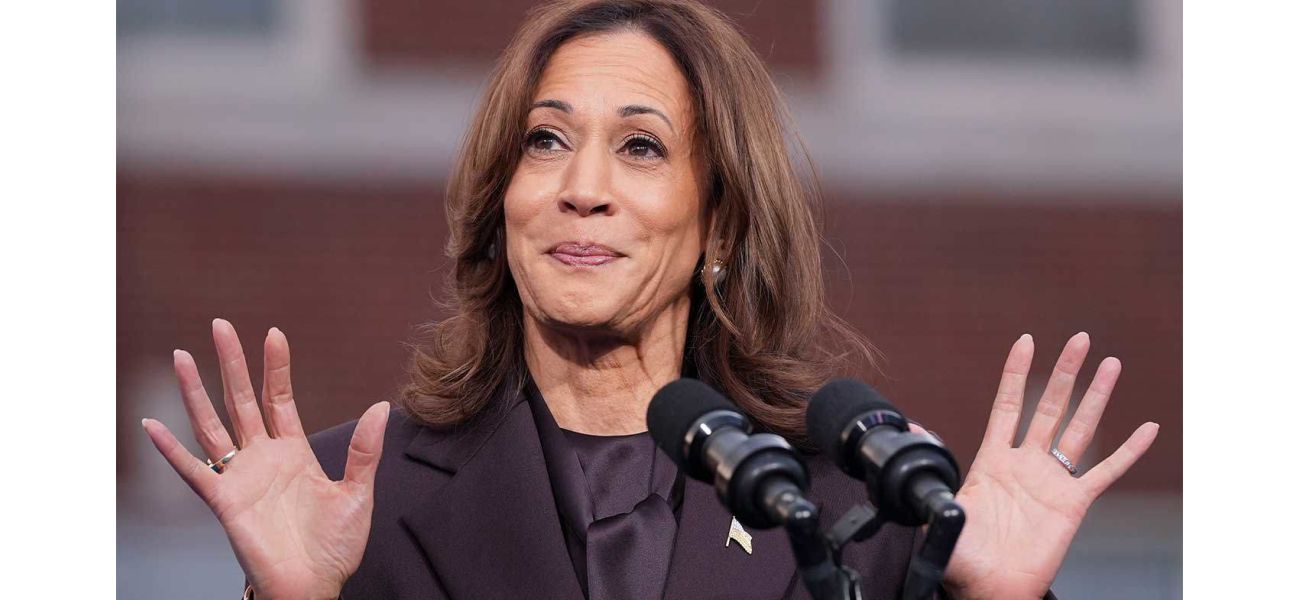Unforeseeable elements that led to the defeat of Kamala Harris in the election.
Harris campaign felt confident with their election strategy just over 24 hours ago.
November 7th 2024.

After a day of feeling confident in their campaign, the Harris team's optimism has turned to disappointment as the final vote results come in. It's become clear that Kamala Harris' attempt to appeal to a wide range of voters has not been successful. In every county and precinct, she has underperformed compared to Joe Biden.
The biggest swings towards Trump were seen among minority voters and young people, but the overall outcome was unfavorable for Harris. Even in places where Democrats typically have strong support, such as heavily Muslim Dearborn, Michigan and Puerto Rican-dominant areas in The Bronx, Harris struggled to gain votes. In New York's Jewish community, while Trump did receive more votes than in the last election, many Democrats chose not to vote at all. And in Texas, the traditionally Democratic Starr County broke a winning streak that had lasted since 1892, with Harris receiving significantly fewer votes than Hillary Clinton did in 2016.
In the aftermath of an election, it's common for analysts to praise the winning candidate's decisions and criticize the losing candidate's choices. However, there was little criticism of Harris' campaign strategy prior to the election. So what went wrong?
It's clear that Harris' strategy did not resonate with voters. Criticisms of Trump's policies and actions did not persuade Republicans to switch sides, and a lack of ambitious plans failed to inspire Democratic turnout. Even with millions of votes still to be counted, Trump has received close to a million fewer votes than he did in 2016, while Harris has received nearly 15 million fewer votes than Biden.
But the biggest issue for Harris was beyond her control. In surveys, voters consistently cited the economy and immigration as their top concerns. While inflation has lowered in the past year, the cost of living remains high and wages have not kept up. And despite leaving office amidst a recession caused by the pandemic, Trump still maintains an image of a successful businessman. Immigration was also a pressing issue, and one that is difficult to solve. With a shortage of labor in the US and economic struggles in other countries, it was challenging to stem the flow of migrants across the border.
Harris was also hindered by her association with her boss, Joe Biden, who has faced unpopularity in recent years. As the vice president, she was hesitant to distance herself from the current administration, as doing so would not look favorable to voters. The decline in support from both Jewish and Muslim voters suggests that Harris was unable to navigate the issue of Gaza effectively. The progressive campus protests, which included instances of anti-Semitism, may have hurt the left among Jewish voters. And while the administration's support of Israel may have pleased some, it also likely alienated Muslim voters.
There may also be a silent factor that voters may not admit to pollsters - a reluctance to have a woman in the highest position of power. It's impossible to determine how many votes were influenced by gender, but it's likely that it played a role in the outcome. Furthermore, Harris may not have had the opportunity to properly introduce herself to voters. As vice president, she was not in the spotlight, and when Biden dropped out of the race, she was quickly elevated to the position. With only a few months to make her name known, Harris did not have many opportunities to connect with voters. She appeared on one late-night talk show, a few podcasts, and had few television news interviews.
In the end, it's hard to say whether changing any of these factors could have altered the outcome of the election. Unlike the close result in 2016, Harris lost by a significant margin. It's reasonable to conclude that her campaign decisions alone could not have changed the result. But for Democrats who now face another four years of Trump in the White House, this realization brings little comfort.
The biggest swings towards Trump were seen among minority voters and young people, but the overall outcome was unfavorable for Harris. Even in places where Democrats typically have strong support, such as heavily Muslim Dearborn, Michigan and Puerto Rican-dominant areas in The Bronx, Harris struggled to gain votes. In New York's Jewish community, while Trump did receive more votes than in the last election, many Democrats chose not to vote at all. And in Texas, the traditionally Democratic Starr County broke a winning streak that had lasted since 1892, with Harris receiving significantly fewer votes than Hillary Clinton did in 2016.
In the aftermath of an election, it's common for analysts to praise the winning candidate's decisions and criticize the losing candidate's choices. However, there was little criticism of Harris' campaign strategy prior to the election. So what went wrong?
It's clear that Harris' strategy did not resonate with voters. Criticisms of Trump's policies and actions did not persuade Republicans to switch sides, and a lack of ambitious plans failed to inspire Democratic turnout. Even with millions of votes still to be counted, Trump has received close to a million fewer votes than he did in 2016, while Harris has received nearly 15 million fewer votes than Biden.
But the biggest issue for Harris was beyond her control. In surveys, voters consistently cited the economy and immigration as their top concerns. While inflation has lowered in the past year, the cost of living remains high and wages have not kept up. And despite leaving office amidst a recession caused by the pandemic, Trump still maintains an image of a successful businessman. Immigration was also a pressing issue, and one that is difficult to solve. With a shortage of labor in the US and economic struggles in other countries, it was challenging to stem the flow of migrants across the border.
Harris was also hindered by her association with her boss, Joe Biden, who has faced unpopularity in recent years. As the vice president, she was hesitant to distance herself from the current administration, as doing so would not look favorable to voters. The decline in support from both Jewish and Muslim voters suggests that Harris was unable to navigate the issue of Gaza effectively. The progressive campus protests, which included instances of anti-Semitism, may have hurt the left among Jewish voters. And while the administration's support of Israel may have pleased some, it also likely alienated Muslim voters.
There may also be a silent factor that voters may not admit to pollsters - a reluctance to have a woman in the highest position of power. It's impossible to determine how many votes were influenced by gender, but it's likely that it played a role in the outcome. Furthermore, Harris may not have had the opportunity to properly introduce herself to voters. As vice president, she was not in the spotlight, and when Biden dropped out of the race, she was quickly elevated to the position. With only a few months to make her name known, Harris did not have many opportunities to connect with voters. She appeared on one late-night talk show, a few podcasts, and had few television news interviews.
In the end, it's hard to say whether changing any of these factors could have altered the outcome of the election. Unlike the close result in 2016, Harris lost by a significant margin. It's reasonable to conclude that her campaign decisions alone could not have changed the result. But for Democrats who now face another four years of Trump in the White House, this realization brings little comfort.
[This article has been trending online recently and has been generated with AI. Your feed is customized.]
[Generative AI is experimental.]
0
0
Submit Comment





